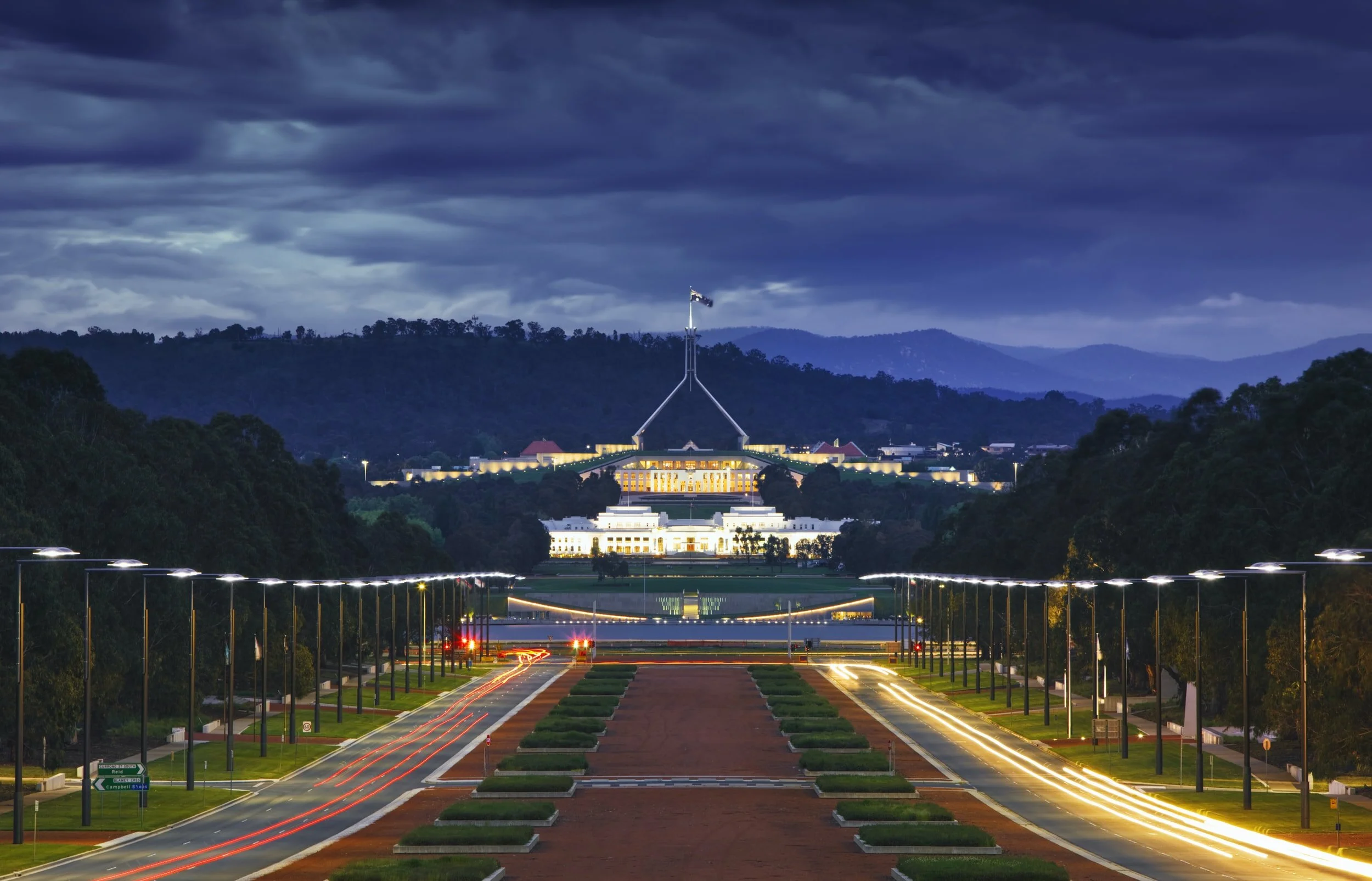The Commission for the Human Future (@HumanFutureAU) recently held a groundbreaking webinar on Catastrophic Risk and the Public Good: Toward our Human Future. Hosted by Dr Arnagretta Hunter (@cbr_heartdoc) - a cardiologist and the Human Futures Fellow in the College of Health and Medicine at ANU and chair of the Commission - and featuring Dr Luke Kemp, an expert in catastrophic risk now based at Cambridge, and Dr Millie Rooney from Australia reMADE, the discussion addressed two big themes: threats to humanity and what matters for people in their lives. The conclusions were that community is central to our human future, and that catastrophic risks like climate change, nuclear war and artificial intelligence can be reduced through better democratic representation, through better economics and through a deliberate acknowledgement of the value of caring and importance of community. In today’s post, Dr Hunter explores key lessons from the webinar and explains why the best hope for a better human future lies in concerted effort.
Read MoreOne of the headline figures in Tuesday’s federal budget was a A$1.1 billion dollar investment in women’s safety. This came as part of a special women’s budget statement, which pitched the budget as helping provide women with “respect, dignity, choice, equality of opportunity and justice”. It also comes amid a national crisis in domestic violence. On average, one woman is killed every week in Australia by a male current or former partner. So does the budget deliver on its promise to prioritise women’s safety and equality at home and at work? Does it do enough?
Read MoreFor decades addressing men’s violence against women has been “a women’s issue” and women’s responsibility. Women have established shelters and refuges to provide safety to women and children, women have taken to the streets to march for their safety, women have shared their lived experiences of violence and much more. We rarely hear from men or from children about their experiences of living with and witnessing men’s violence. This deeply personal piece seeks to start to change that.
Read MorePeter Martin recently argued that the government’s budget is their true statement of values. As we have watched the Federal Government trying to get onto the front foot to address their ‘woman problem’ over recent weeks, an insight into their values would be helpful. In today’s analysis, Helen Dalley-Fisher of the Equality Rights Alliance (@EraAustralia) explains how the Federal budget is the key document to provide forensic evidence that they mean business.
Read MoreWayne Herbert, disability employment professional and person with disability makes a powerful argument for inclusive education. Segregation in education is indefensible on human rights and outcomes grounds.
Read MoreAustralia’s child protection systems have long failed the families and children it was designed to protect. The structural injustices of the child protection system can be tackled by building institutional justice capital. This must include parental rights, non-violence, respectful relationships and public debate argue Dr Sharynne Hamilton and Dr Sarah Maslen.
Read MoreIn this post, Miqdad Asaria, Joan Costa-Font and Frank Cowell (London School of Economics) present their research on a seldom discussed topic - people’s aversion to income and health inequality in society. They argue that COVID-19 has made people more averse to inequalities, particularly if they have had COVID-19 themselves.
Read MoreDespite being 30 years since the Royal Commission into Aboriginal deaths in custody, families continue to lose loved ones. More than 455 Indigenous Australians have lost their lives in police or prison custody since the Royal Commission reported and according to families, the loss of life is higher than what has been reported. In today’s post, Eddie Cubillo, a proud Larrakia, Wadjigan, Central Arrernte man from the Northern Territory and Senior Indigenous Fellow at Melbourne Law School, University of Melbourne, highlights successive government’s failure to act on the Royal Commission’s recommendations and calls for taking real and effective action into Aboriginal deaths in custody.
Read MoreWhile the news has been full of the increasing financial stress many Australians are facing with the withdrawal of JobKeeper and the Coronavirus Supplement, there has been little focus on what these changes mean for children. Australia has signed on to the Sustainable Development Goals, but have been criticised for the high levels of poverty, and child poverty in particular, with little progress in evidence across the years. In today’s post, Sharon Bessell (@BessellSharon) of ANU’s Crawford School of Public Policy (@ANU Crawford) shares her important research conducted with children, who explain in their own words the stressors and constraints that poverty places on their everyday decisions, plans for the future, and family relationships. This provides fresh insight into how the less generous support settings will exacerbate wellbeing and opportunities for children and families in low-income households.
Read MoreToday’s post from Janet Hunt questions the extension of the Cashless Debit Card to more people receiving income support in Australia in light of its problematic evaluation. Associate Professor Hunt is a former president of ANTaR, a member of ANTaR ACT, and researcher at the Centre for Aboriginal Economic Policy Research. Her research has focussed on Indigenous governance, government engagement with Aboriginal and Torres Strait Islander communities, and community development over many years. This post was originally published on the ANTaR website.
Read MoreQualitative longitudinal research can make a distinctive contribution to social policy discussions and to the assessment of outcomes. In today’s post, Jane Millar, Professor of Social Policy at the University of Bath, draws on longitudinal research with lone-parent families to illustrate how change and continuity can look different over shorter and longer time periods, and to explore some of the challenges of engaging in policy debates with qualitative data. The post was originally published on The Social Policy Blog, the companion blog to the Journal of Social Policy, Social Policy and Society and the Journal of International and Comparative Social Policy.
Read MoreToday's post is from Tina Haywood, an author and proud Aboriginal woman. In her new book, We are Warriors: An Aboriginal Woman's Life, Tina documents lessons from her own life to encourage other women to make brave decisions, and to build broader understanding of the experiences of Aboriginal women and families navigating individual and intergenerational trauma.
Read MoreThe Federal government wants to see more women in STEM (Science, Technology, Engineering and Maths) careers; a strategy for encouraging women to remain in STEM careers was a key component of the 2020 budget. While there is plenty of interest from girls and women, the well-known ‘leaky pipeline’ means women drop out of a promising STEM career trajectory at critical junctures, and those who remain are often less satisfied than their male counterparts. In today’s important analysis, Rachel Climie (@RachelClimie), Anna Calkin (@Anna_Calkin) and Niamh Chapman (@Dr_NChapman) share their research into the gender disparities in cardiovascular disease (CVD), along with important insights into what would make it easier for women to thrive.
Read MoreIn this post, a team from the University of Melbourne consider food insecurity among Australian university students in light of the COVID-19 pandemic, including ways forward. Post authors are Associate Professor Jane Dyson, Professor Craig Jeffrey, Associate Professor Gyorgy Scrinis, Charlene Edwards, Rafaela Anja, Louisa Ellis, Aasha Sriram, Mia Zentari and Eugenia Zoubtchenko.
This post was originally published at the University of Melbourne’s website, Pursuit, and the original version can be found here.
Read MoreThis post, written by Dr Yona Lunsky (@yonalunsky), considers the role and intersection of “numbers” and “stories” in advocacy for people with disability in the roll out of the COVID-19 vaccine in Canada and the UK. While centred on the experience of these two countries, the piece also has important implications for the use of evidence within disability advocacy in Australia as well.
This post first appeared on the Portico website (Health Care Access and Developmental Disabilities research program), held by Canada’s Mental Health and Addiction Network, with the original version available here.
Read MoreThis post by Simone Casey (@simonecasey) and David O’Halloran considers a cross-disciplinary perspective on the effectiveness of JobSeeker sanctions, applying power relations and psycho-social lenses. This post originally appeared on Austaxpolicy: Tax and Transfer Policy Blog, with original version available here.
Read MoreIn today’s post, originally published in The Conversation, Professor Helen Dickinson (@drhdickinson) outlines concerns about the introduction of independent assessments into Australia’s National Disability Insurance Scheme, and explains why an independent evaluation of the proposed changes, designed in consultation with people with disability and their families, is needed before they are introduced.
Read MorePRIMARY CARE NETWORKS (PCNs) were introduced across England in July 2019, bringing together groups of general practices, along with community providers, to develop new services for patients. These networks respond to a need for better integration of health and social care services and issues of sustainability in primary care.
Read More




















